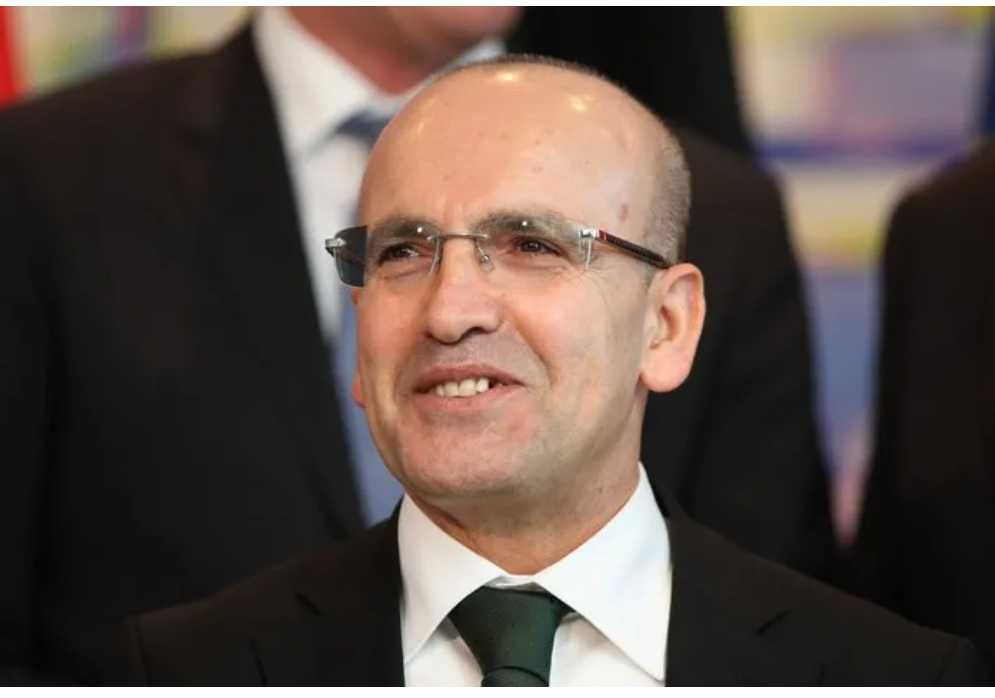Türkiye will not do anything “extraordinary” to curb inflation, Treasury and Finance Minister Mehmet Şimşek said Friday, emphasizing the commitment to employing conventional monetary policies.
Addressing the Türkiye-Saudi Arabia Investment and Business Forum in Istanbul, Şimşek expressed confidence that tightening policies would prove effective and reiterated views that inflation would see a steep fall as of the second half of 2024.
Running at nearly 65%, inflation is expected to peak by mid-year.
“We will not do anything extraordinary to reduce inflation; conventional monetary policies will be implemented, and tightening monetary policies will work,” the minister said.
Şimşek is leading a team that orchestrated a policy pivot since last year’s elections, delivering aggressive monetary tightening to curb inflation. The shift is also aimed at reducing chronic deficits, rebuilding foreign exchange reserves, and stabilizing Turkish lira.
The country’s central bank lifted its benchmark policy rate to 45% from 8.5% in June 2023. It signaled last month that the tightening cycle was complete.
‘Journey has already begun’
Şimşek emphasized that the medium-term program, unveiled last September, aims to ensure price stability and single-digit inflation.
“We are improving financial health, repairing damage caused by the major earthquake, reducing deficiencies, and, more importantly, we will implement structural reforms to sustain these gains,” he said.
The economic program sees inflation falling to 36% by the end of this year, before dropping to 14% in 2025 and to single digits by 2026. Şimşek said market inflation forecasts were close to those of the government, which he dubbed important.
Stressing the positive market reception to their monetary policy strategies, Şimşek cited a steep fall in Türkiye’s credit default swaps (CDS), a key risk measure, which dropped to below 300 basis points, compared to as high as 700 bps last May.
Investments to gain pace
The minister said there is strong evidence that the government’s economic program is working.
He said that the road map would help restore investor confidence, thereby affecting inflows and assisting in the normalization of the real effective exchange rate.
Şimşek said Türkiye has seen a significant increase in net portfolio inflows as of the second half of 2023, and expects to see the momentum gaining further pace after local elections in late March.
Spending after the earthquakes that struck Türkiye’s southeastern region last February caused a significant budget deficit, which Şimşek said had a temporary impact and that progress will continue in the current account deficit and the gross domestic product.
The government budget ran a deficit of TL 1.37 trillion (about $45.5 billion) in 2023, or 5.4% of GDP. It marked an 863.8% increase from a gap of TL 142.7 billion in 2022. The medium-term program projects a ratio of 6.4% in 2024, influenced by earthquake-related expenses.
Şimşek said the current account deficit, which ended 2023 at $45.2 billion, would fall below $30 billion this year.
“The current account deficit has already started to decrease, and we believe we are on the right path. The current account deficit will fall below $30 billion in the first half of this year,” he noted.
He also stressed robust economic growth and said Türkiye is one of the leading emerging markets.
“We are currently experiencing a temporary slowdown, but structural reforms are one of the key areas to rebuild this growth and ensure sustainable high growth in the medium term,” Şimşek noted.
dailysabah.com
